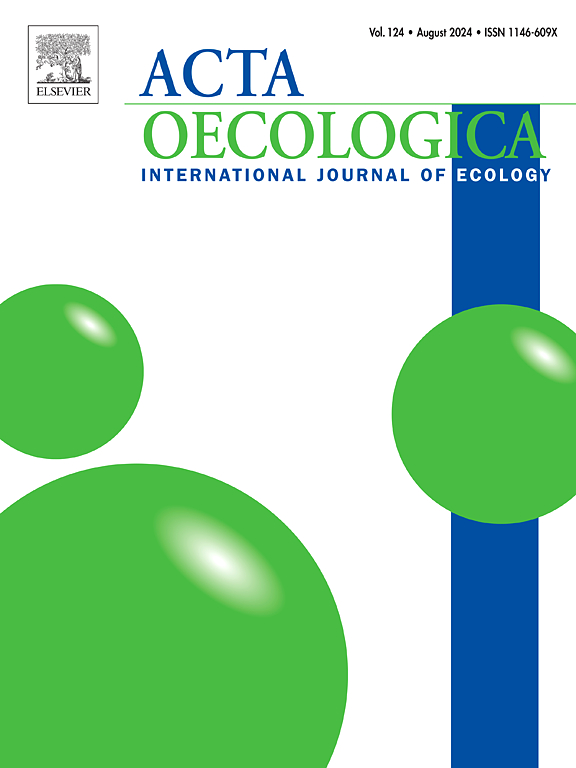新生态不需要生态位
IF 1.3
4区 环境科学与生态学
Q3 ECOLOGY
Acta Oecologica-International Journal of Ecology
Pub Date : 2025-04-01
DOI:10.1016/j.actao.2025.104075
引用次数: 0
摘要
“生态位”的概念已被广泛用于解释生态模式。然而,这个概念有不同的定义,并一直在讨论中。这个概念真的能帮助生态学成为我们迫切需要阻止生物多样性下降的预测科学吗?为了找到这个问题的答案,我们讨论了基于代理、信息和复杂性的生态思维的最新发展。生态主体,通常被称为生物体,根据处理从自身经验和当前状态以及环境中收集的信息,不断自主地决定如何行动。群落中所有生物的集体决策共同形成了生态模式。这些模式可能并不总是与人类在环境中感知到的模式一致。这种新的生态学方法意味着对生态系统的非确定性观点,因为生态系统在各个尺度上都在不断变化。如果群落生态学能够根据生物体可获得的信息以及它们如何根据这些信息决定采取行动来预测生态模式,那么它将成为一门解释性科学。我们认为,生态位的概念与植根于静态生态系统的确定性世界观的传统思维有关,静态生态系统包括生物在空间和时间上的固定分布。在新的生态学方法中,生态位不再对生态模式的准确预测有用。然而,我们相信,考虑到这些预测中涉及的大量信息,机器学习的新发展——人工智能——可能会有所帮助。本文章由计算机程序翻译,如有差异,请以英文原文为准。
No need for niches in new ecology
The concept of ‘niche’ has been extensively used to explain ecological patterns. However, the concept has been defined differently and is continuously under discussion. Does the concept truly help ecology become the predictive science we urgently need to stop the decline of biodiversity? To find an answer to this question, we discuss recent developments in ecological thinking based on agency, information, and complexity.
The ecological agent, usually referred to as an organism, continuously and autonomously decides how to act based on processing information that it collects from within—its experience and current state—and from its environment. The collective decisions of all organisms in a community together result in ecological patterns. These patterns may not always align with the patterns that humans perceive in the environment. This new approach to ecology implies a non-deterministic view of ecosystems, which are constantly changing at all levels of scale.
Community ecology would become an explanatory science if it could predict ecological patterns based on the information available to organisms and how these decide to act based on that information.
We argue that the concept of the niche is tied to traditional thinking rooted in a deterministic worldview about static ecosystems, which includes a fixed distribution of organisms in space and time. In the new ecological approach, the niche is no longer useful for accurate predictions of ecological patterns. However, we believe that new developments in machine learning – AI - may be helpful, given the vast amount of information involved in these predictions.
求助全文
通过发布文献求助,成功后即可免费获取论文全文。
去求助
来源期刊
CiteScore
3.60
自引率
0.00%
发文量
57
审稿时长
>0 weeks
期刊介绍:
Acta Oecologica is venue for the publication of original research articles in ecology. We encourage studies in all areas of ecology, including ecosystem ecology, community ecology, population ecology, conservation ecology and evolutionary ecology. There is no bias with respect to taxon, biome or geographic area. Both theoretical and empirical papers are welcome, but combinations are particularly sought. Priority is given to papers based on explicitly stated hypotheses. Acta Oecologica also accepts review papers.

 求助内容:
求助内容: 应助结果提醒方式:
应助结果提醒方式:


